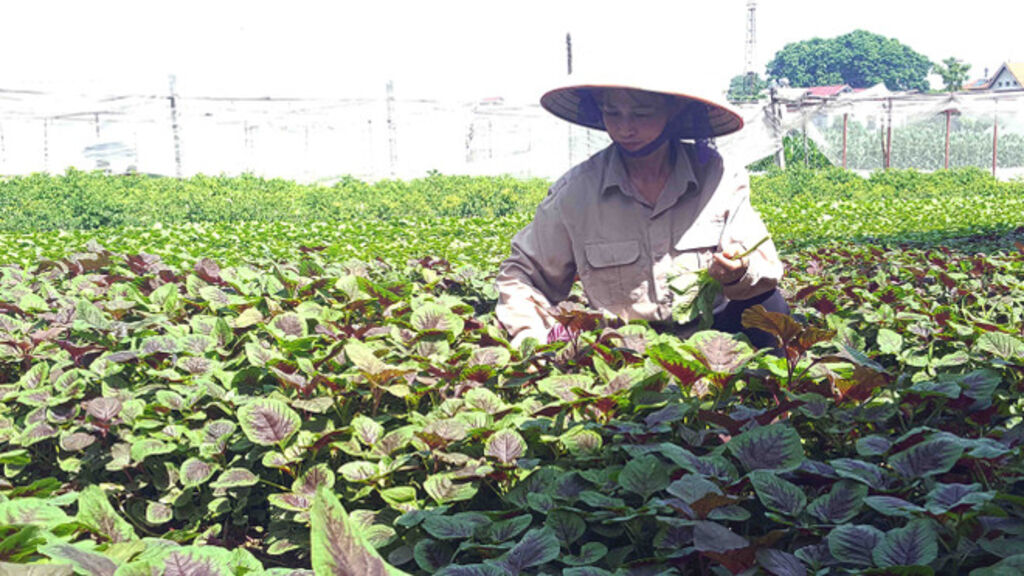 |
| An organic vegetable farm in Pho Yen town of Thai Nguyen province__Photo: VNA |
With a view to strengthening financial support for sustainable agricultural development, particularly in organic and circular farming, the Government on June 16 issued Decree 156/2025/ND-CP, revising several provisions of Decree 55/2015/ND-CP on credit policies for agriculture and rural areas.
A key highlight of the revised Decree is Article 15a providing credit policies to promote organic and circular agricultural practices.
As per this Article, individuals and organizations that have projects or business plans on production of organic farm produce, or production and trade of farm produce that meet the criteria of a circular economy, as specified by relevant laws, may borrow bank loans equal to 70 percent of their projects’ or business plans’ value without having to provide collateral.
In case borrowers suffer losses due to objective reasons or force majeure events, such loans will be handled similarly to those of lead entities in value chain-based linkages. Specifically, borrowers may be considered for debt rescheduling and have their existing debt classification maintained, and considered for new loans depending on feasibility of their projects and their loan repayment capacity.
When further support is needed, the State Bank of Vietnam (SBV), in coordination with the Ministry of Finance and based on proposals of provincial People’s Committees, may request the Prime Minister to permit interest-free debt freezing for up to three years for borrowers. During this period, the debts will retain their original classification, and the lost loan interest amounts will be covered by the state budget.
If borrowers remain unable to repay the loans even after the above measures are applied, provincial authorities may report the situation to the Prime Minister, SBV and the Ministry of Finance. Based on these reports, the SBV may propose debt write-off and budget compensation to credit institutions based on actual losses incurred.
The new Decree also introduces higher limits for unsecured loans. Specifically, individuals and households may borrow up to VND 300 million without collateral; business households and cooperative groups up to VND 500 million; farm owners up to VND 3 billion; and cooperatives and unions of cooperatives up to VND 5 billion.- (VLLF)









